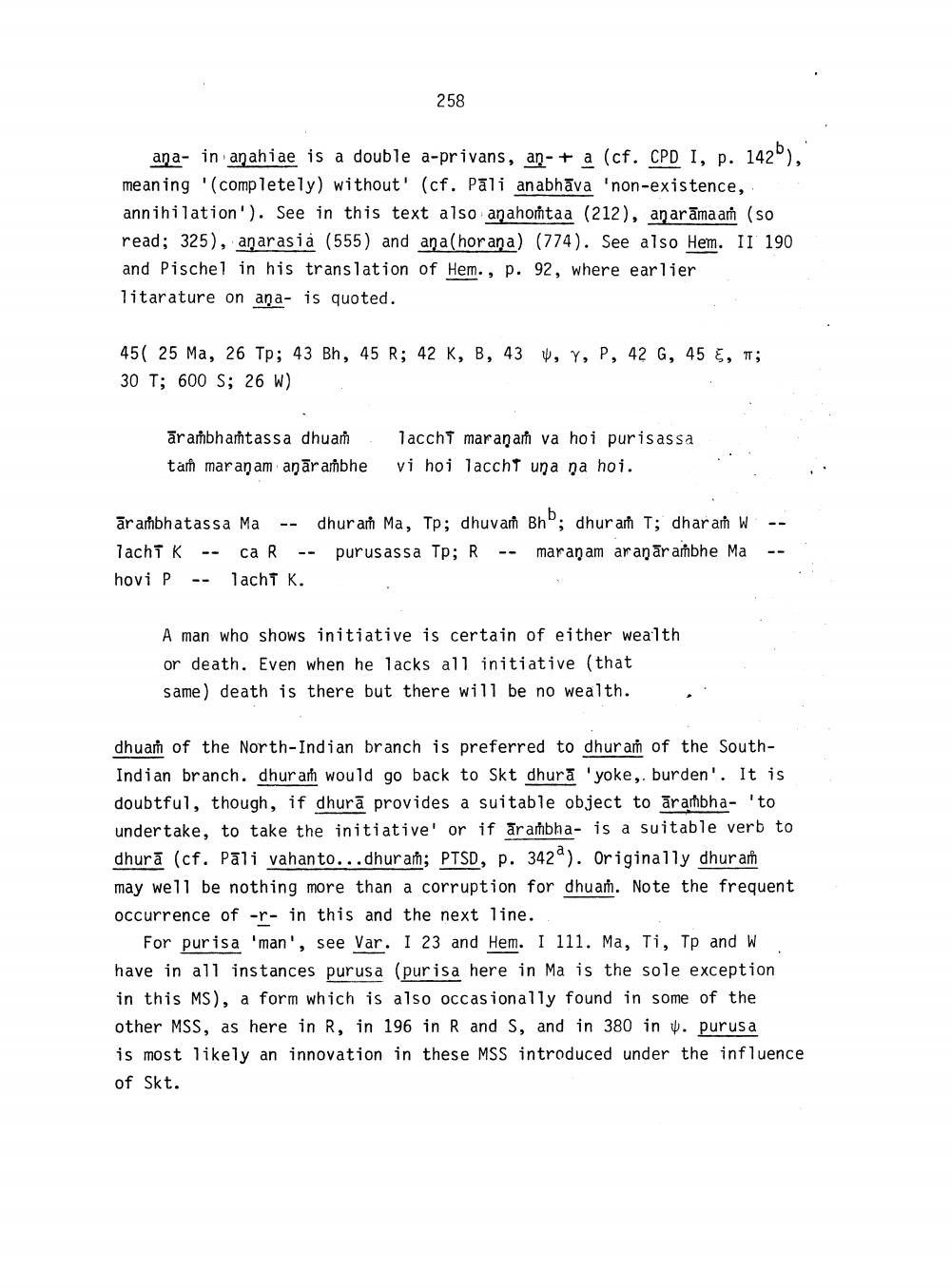________________
258
ana- in anahiae is a double a-privans, an- + a (cf. CPD I, p. 142"), meaning '(completely) without' (cf. Pāli anabhāva 'non-existence, annihilation'). See in this text also anahontaa (212), anarāma aṁ (so read; 325), anarasia (555) and ana(horana) (774). See also Hem. II 190 and Pischel in his translation of Hem., p. 92, where earlier litarature on ana- is quoted.
45( 25 Ma, 26 Tp; 43 Bh, 45 R; 42 K, B, 43 X, Y, P, 42 G, 45 Į, T; 30 T; 600 S; 26 W)
ārambhamtassa dhuan ta maraŋam aņārasbhe
lacchi maranai va hoi purisassa vi hoi laccht una na hoi.
ār arbhatassa Ma -- dhura Ma, Tp; dhuvan Bho; dhur an T; dhar an W -- lacht -- ca R -- purusassa Tp; R -- maranam ar an ār abhe Ma -- hovi P -- lacht K.
A man who shows initiative is certain of either wealth or death. Even when he lacks all initiative (that same) death is there but there will be no wealth.
dhuan of the North-Indian branch is preferred to dhuram of the SouthIndian branch. dhur am would go back to Skt dhurā 'yoke, burden'. It is doubtful, though, if dhurā provides a suitable object to arambha- 'to undertake, to take the initiative' or if arambha- is a suitable verb to dhurā (cf. Pāli vahanto...dhuram; PTSD, p. 342"). Originally dhura may well be nothing more than a corruption for dhuam. Note the frequent occurrence of -r- in this and the next line.
For purisa 'man', see Var. I 23 and Hem. I 111. Ma, Ti, Tp and W have in all instances purusa (purisa here in Ma is the sole exception in this MS), a form which is also occasionally found in some of the other MSS, as here in R, in 196 in R and S, and in 380 in 8. purusa is most likely an innovation in these MSS introduced under the influence of Skt.




